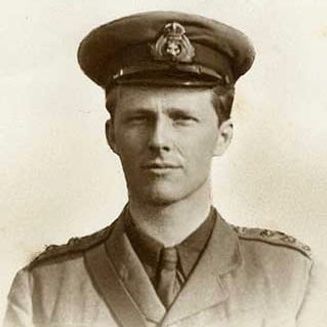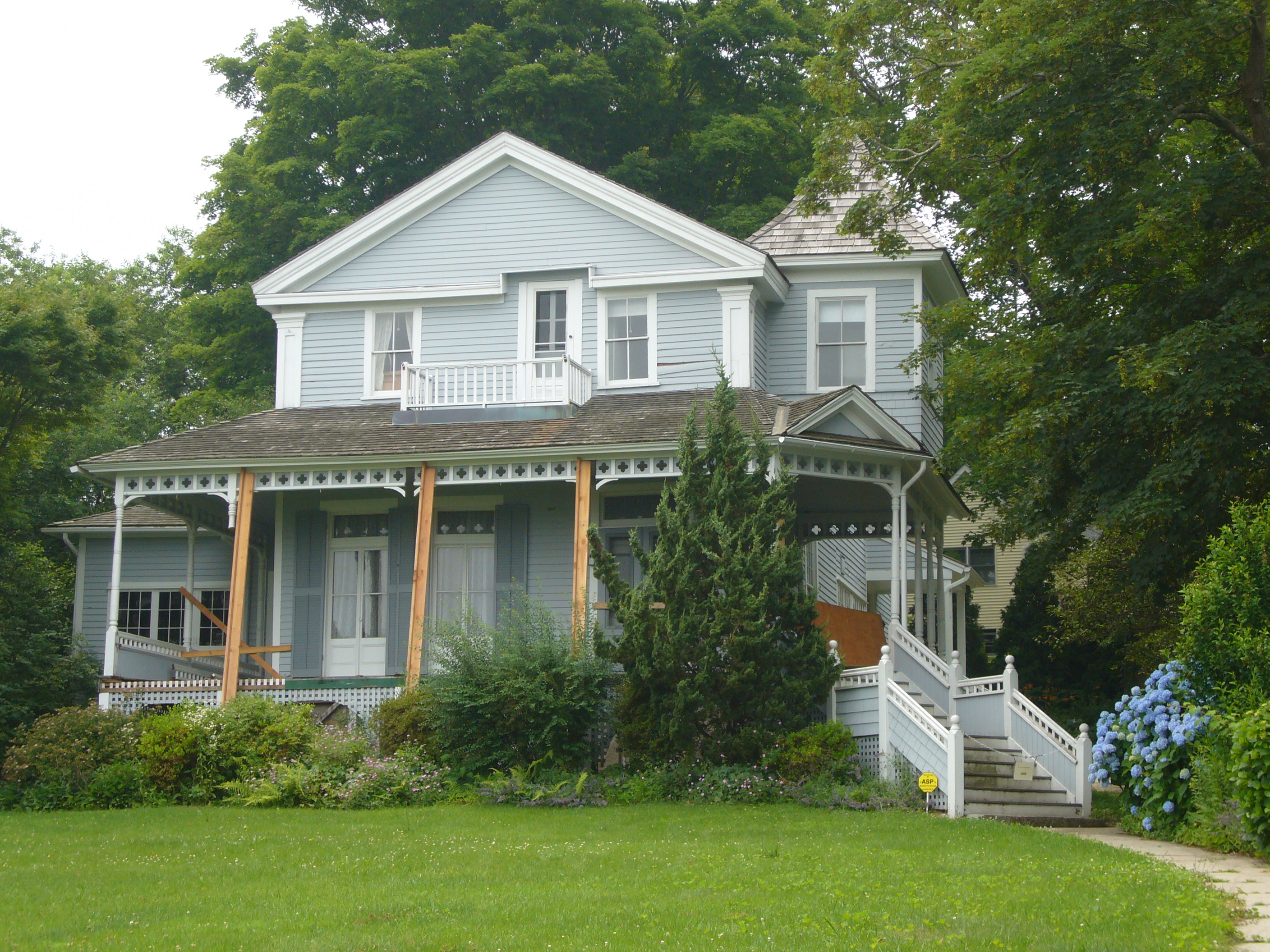|
Gwen Ffrangcon-Davies
Dame Gwen Lucy Ffrangcon-Davies (25 January 1891 – 27 January 1992) was a British actress who worked mainly in theatre and television, as well as radio and film. She made her last acting appearance as a centenarian in 1991. Early life She was born in London of a Welsh family; the name "Ffrangcon" is said to originate from a valley in Snowdonia. Her parents were opera baritone David Ffrangcon-Davies (né David Thomas Davies) and Annie Francis Rayner. Career Ffrangcon-Davies made her stage debut in 1911, as a singer as well as an actress, and received encouragement in her career from Ellen Terry. In 1924, she played Juliet opposite John Gielgud as Romeo, and Gielgud was grateful to her for the rest of his life for the kindness she showed him, casting her as Queen Anne in '' Richard of Bordeaux'' in 1934. In 1925, Ffrangcon-Davies played Tess in a stage version of ''Tess of the d'Urbervilles'', including a special presentation for its author, Thomas Hardy. In 1938, Ffrangc ... [...More Info...] [...Related Items...] OR: [Wikipedia] [Google] [Baidu] |
Dame
''Dame'' is a traditionally British honorific title given to women who have been admitted to certain orders of chivalry. It is the female equivalent of ''Sir'', the title used by knights. Baronet, Baronetesses Suo jure, in their own right also use the title ''Dame''. A woman appointed to the grades of Dame Commander or Dame Grand Cross of the Order of Saint John (Bailiwick of Brandenburg), Order of Saint John, the Order of the Holy Sepulchre (Catholic), Order of the Holy Sepulchre, the Order of the Bath, the Order of Saint Michael and Saint George, the Royal Victorian Order, or the Order of the British Empire becomes a dame. A Central European order in which female members receive the rank of Dame is the Order of St. George (Habsburg-Lorraine), Order of Saint George. Since there is no female equivalent to a Knight Bachelor, women are always appointed to an Order (distinction), order of chivalry. Women who are appointed to the Order of the Garter or the Order of the Thistle are gi ... [...More Info...] [...Related Items...] OR: [Wikipedia] [Google] [Baidu] |
Ivor Novello
Ivor Novello (born David Ivor Davies; 15 January 1893 – 6 March 1951) was a Welsh actor, dramatist, singer and composer who became one of the most popular British entertainers of the first half of the 20th century. He was born into a musical family, and his first successes were as a songwriter. His first big hit was " Keep the Home Fires Burning" (1914), which was enormously popular during the First World War. His 1917 show, '' Theodore & Co'', was a wartime hit. After the war, Novello contributed numbers to several successful musical comedies and was eventually commissioned to write the scores of complete shows. He wrote his musicals in the style of operetta and often composed his music to the libretti of Christopher Hassall. In the 1920s he turned to acting, first in British films and then on stage, with considerable success in both. He starred in two silent films directed by Alfred Hitchcock, '' The Lodger'' and '' Downhill'' (both 1927). On stage, he played the title c ... [...More Info...] [...Related Items...] OR: [Wikipedia] [Google] [Baidu] |
Rupert Brooke
Rupert Chawner Brooke (3 August 1887 – 23 April 1915The date of Brooke's death and burial under the Julian calendar that applied in Greece at the time was 10 April. The Julian calendar was 13 days behind the Gregorian calendar.) was an English poet known for his idealistic war sonnets written during the First World War, especially " The Soldier". He was also known for his boyish good looks, which were said to have prompted the Irish poet W. B. Yeats to describe him as "the handsomest young man in England". He died of septicaemia following a mosquito bite whilst aboard a French hospital ship moored off the island of Skyros in the Aegean Sea. Early life Brooke was born at 5 Hillmorton Road, Rugby, Warwickshire, and named after a great-grandfather on his mother's side, Rupert Chawner (1750–1836), a distinguished doctor descended from the regicide Thomas Chaloner (the middle name has however sometimes been erroneously given as "Chaucer"). He was the third of four children ... [...More Info...] [...Related Items...] OR: [Wikipedia] [Google] [Baidu] |
Anna Massey
Anna Raymond Massey (11 August 19373 July 2011) was an English actress. She won a British Academy Film Awards, BAFTA Best Actress Award for the role of Edith Hope in the Hotel du Lac (film), 1986 TV adaptation of Anita Brookner's novel ''Hotel du Lac'', a role that one of her co-stars, Julia McKenzie, has said "could have been written for her". Massey is also well known for her role in Alfred Hitchcock's ''Frenzy (1972 film), Frenzy'' (1972) as a barmaid who becomes involved with a suspected killer. She performed over one hundred character roles in British film and television. On the stage, in 1982 Laurence Olivier Awards, 1982, Massey won the Laurence Olivier Award for Best Actress in a Supporting Role, Laurence Olivier Award for Actress of the Year in a Supporting Role for The Importance of Being Earnest, ''The Importance of Being Earnest'' and was nominated for the Laurence Olivier Award for Actress of the Year in a New Play, Award for Actress of the Year in a New Play for '' ... [...More Info...] [...Related Items...] OR: [Wikipedia] [Google] [Baidu] |
Alec McCowen
Alexander Duncan McCowen, (26 May 1925 – 6 February 2017) was an English actor. He was known for his work in numerous film and stage productions. Early life McCowen was born in Tunbridge Wells, Kent, the son of Mary (née Walkden), a dancer, and Duncan McCowen, a shopkeeper. He attended The Skinners' School in Tunbridge Wells - he was known as 'Squeaker' McCowen by his friends - and the Royal Academy of Dramatic Art. Career Early theatre work McCowen first appeared on stage at the Macclesfield repertory theatre in August 1942 as Micky in ''Paddy the Next Best Thing''. He appeared in repertory in York and Birmingham 1943–45, and toured India and Burma in a production of Kenneth Horne's West End comedy '' Love in a Mist'' during 1945 with the Entertainments National Service Association ( ENSA). He continued in repertory 1946–49, during which time he played a season at St John's, Newfoundland, Canada. McCowen made his London debut on 20 April 1950, at the Arts The ... [...More Info...] [...Related Items...] OR: [Wikipedia] [Google] [Baidu] |
Francis Thompson
Francis Joseph Thompson (16 December 1859 – 13 November 1907) was an English poet and Catholic mystic. At the behest of his father, a doctor, he entered medical school at the age of 18, but at 26 left home to pursue his talent as a writer and poet. He spent three years on the streets of London, supporting himself with menial labour, becoming addicted to opium which he took to relieve a nervous problem. In 1888 Wilfrid and Alice Meynell read his poetry and took the opium-addicted and homeless writer into their home for a time, later publishing his first volume, ''Poems'', in 1893. In 1897, he began writing prose, drawing inspiration from life in the countryside, Wales and Storrington. His health, always fragile, continued to deteriorate and he died of tuberculosis in 1907. By that time he had published three books of poetry, along with other works and essays. Early life and study Thompson was born in Winckley Street, Preston, Lancashire and baptized four days later in ... [...More Info...] [...Related Items...] OR: [Wikipedia] [Google] [Baidu] |
Long Day's Journey Into Night
''Long Day's Journey into Night'' is a play in four acts written by American playwright Eugene O'Neill in 1939–1941 and first published posthumously in 1956. It is widely regarded as his magnum opus and one of the great American plays of the 20th century. It premiered in Sweden in February 1956 and then opened on Broadway in November 1956, winning the Tony Award for Best Play. O'Neill received the 1957 Pulitzer Prize for Drama posthumously for ''Long Day's Journey into Night''. The work is openly autobiographical in nature. The "long day" in the title refers to the setting of the play, which takes place during one day. '' A Moon for the Misbegotten'' is a sequel to the play. Summary The play takes place on a single day in August 1912. The setting is Monte Cristo Cottage, the seaside home of the Tyrones in Connecticut. The four main characters are the semi-autobiographical representations of O'Neill, his older brother, and their parents, including his father actor James O' ... [...More Info...] [...Related Items...] OR: [Wikipedia] [Google] [Baidu] |
Evening Standard Theatre Awards
The ''Evening Standard'' Theatre Awards, established in 1955, are the oldest theatrical awards ceremony in the United Kingdom. They are presented annually for outstanding achievements in London Theatre, and are organised by the ''Evening Standard'' newspaper. They are the West End's equivalent to Broadway's Drama Desk Awards. Trophies The trophies take the form of a modelled statuette, a figure representing Drama, designed by Frank Dobson RA, a former Professor of Sculpture at the Royal College of Art. Categories Three of the awards are given in the names of former ''Evening Standard'' notables: *Arts editor Sydney Edwards (who conceived the awards, and died suddenly in July 1979) for the Best Director category. *Editor Charles Wintour (who as deputy-editor in 1955, launched the awards after a nod from the proprietor, Lord Beaverbrook') for Most Promising Playwright. *Long-serving theatre critic Milton Shulman (for several years a key member of the judging panel) for the ... [...More Info...] [...Related Items...] OR: [Wikipedia] [Google] [Baidu] |
Macbeth
''The Tragedy of Macbeth'', often shortened to ''Macbeth'' (), is a tragedy by William Shakespeare, estimated to have been first performed in 1606. It dramatises the physically violent and damaging psychological effects of political ambitions and power. It was first published in the Folio of 1623, possibly from a prompt book, and is Shakespeare's shortest tragedy. Scholars believe ''Macbeth'', of all the plays that Shakespeare wrote during the reign of King James I, contains the most allusions to James, patron of Shakespeare's acting company. In the play, a brave Scottish general named Macbeth receives a prophecy from a trio of witches that one day he will become King of Scotland. Consumed by ambition and spurred to violence by his wife, Macbeth murders the king and takes the Scottish throne for himself. Then, racked with guilt and paranoia, he commits further violent murders to protect himself from enmity and suspicion, soon becoming a tyrannical ruler. The bloo ... [...More Info...] [...Related Items...] OR: [Wikipedia] [Google] [Baidu] |
Lady Macbeth
Lady Macbeth is a leading character in William Shakespeare's tragedy ''Macbeth'' (). As the wife of the play's tragic hero, Macbeth (a Scottish nobleman), Lady Macbeth goads her husband into committing regicide, after which she becomes queen of Scotland. Some regard her as becoming more powerful than Macbeth when she does this, because she is able to manipulate him into doing what she wants. After Macbeth becomes a murderous tyrant, she is driven to madness by guilt over their crimes and kills herself offstage. Lady Macbeth is a powerful presence in the play, most notably in the first two acts. Following the murder of King Duncan, however, her role in the plot diminishes. She becomes an uninvolved spectator to Macbeth's plotting and a nervous hostess at a banquet dominated by her husband's hallucinations. Her sleepwalking scene in the fifth act is a turning point in the play, and her line "Out, damned spot!" has become a phrase familiar to many speakers of the English langu ... [...More Info...] [...Related Items...] OR: [Wikipedia] [Google] [Baidu] |
Patrick Hamilton (dramatist)
Anthony Walter Patrick Hamilton (17 March 1904 – 23 September 1962) was an English playwright and novelist. He was well regarded by Graham Greene and J. B. Priestley, and study of his novels has been revived because of their distinctive style, deploying a Dickensian narrative voice to convey aspects of inter-war London street culture. They display a strong sympathy for the poor, as well as an acerbic black humour. Doris Lessing wrote in ''The Times'' in 1968: "Hamilton was a marvellous novelist who's grossly neglected". His two most successful plays, ''Rope (play), Rope'' (1929) and ''Gas Light'' (1938), were made into famous films: Alfred Hitchcock's ''Rope (film), Rope'' (1948); the UK-made ''Gaslight (1940 film), Gaslight'' (1940), followed by the 1944 Gaslight (1944 film), American version. Life and works Hamilton was born on 17 March 1904, at Dale House, in the Sussex village of Hassocks, near Brighton, to (Walter) Bernard Hamilton (1863-1930), a writer and non-pra ... [...More Info...] [...Related Items...] OR: [Wikipedia] [Google] [Baidu] |






